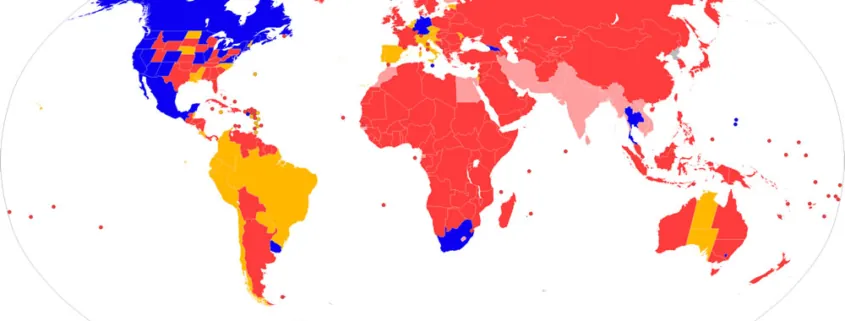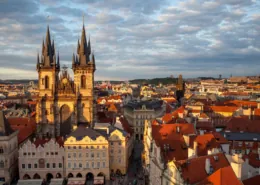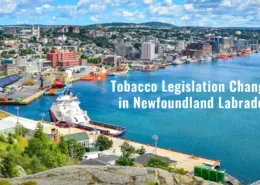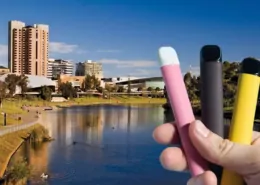Marijuana Legalization Worldwide: Medical and Recreational Use
The legal status of cannabis for medical and recreational use varies significantly across the globe. Each country has its own set of regulations governing the possession, distribution, cultivation, and consumption of marijuana. These policies are largely influenced by three United Nations treaties: the 1961 Single Convention on Narcotic Drugs, the 1971 Convention on Psychotropic Substances, and the 1988 Convention Against Illicit Traffic in Narcotic Drugs and Psychotropic Substances.
In 2020, the UN reclassified cannabis as a Schedule I drug under the Single Convention treaty, removing it from Schedule IV. The schedules range from IV (strictest) to III (least strict). As a Schedule I drug, countries can allow the medical use of cannabis, but it is still considered an addictive substance with a high risk of abuse.
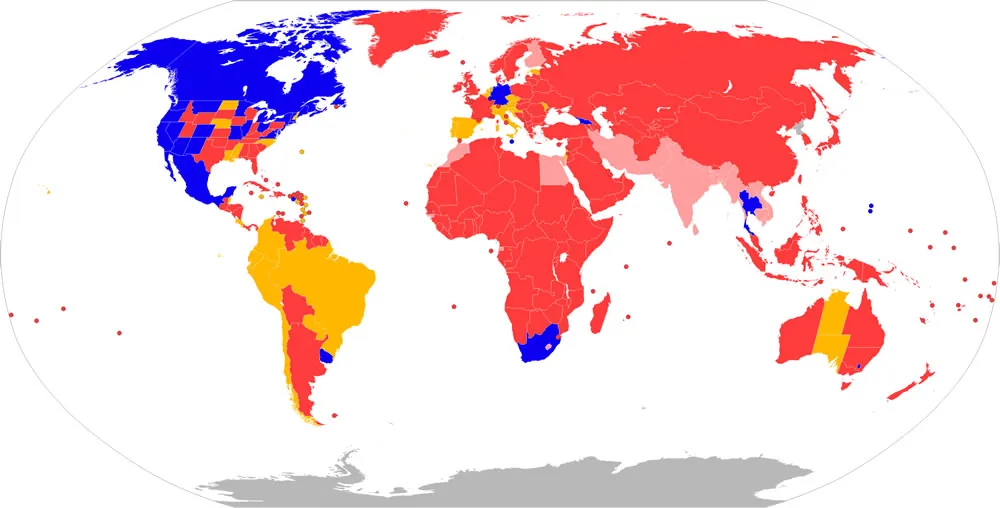
Recreational Use
Most countries prohibit the use of cannabis for recreational purposes. However, some have adopted decriminalization policies, making simple possession a non-criminal offense, often similar to a minor traffic violation. On the other hand, several Middle Eastern and Far Eastern countries impose severe penalties for possession, even in small amounts, resulting in lengthy prison sentences.
As of 2023, only a handful of countries have legalized recreational use of cannabis:
| Country | Recreational Status | Medical Status | Possession Limits | Cultivation Limits | Sales/Distribution | Age Limit |
|---|---|---|---|---|---|---|
| Canada | Legal | Legal | 30g in public | 4 plants per household | Licensed retailers | 18-21* |
| Georgia | Legal possession & consumption | Legal | No limit specified | Not specified | Sale not permitted | Not specified |
| Germany | Legal since April 2024 | Legal | 25g in public, 50g at home | 3 plants per person | Through cannabis clubs (from July 2024) | 18+ |
| Luxembourg | Legal | Legal | 3g in public | 4 plants at home | Sale prohibited | 18+ |
| Malta | Legal | Legal | Not specified | Not specified | Through non-profit cannabis clubs | 18+ |
| Mexico | Legal with permit | Legal | Not specified | Allowed with permit | Sale not permitted | 18+ |
| South Africa | Legal in private places | Legal | Not specified | Allowed for private use | Sale not permitted | 18+ |
| Thailand | Legal in private place | Legal | Legal | Legal | Legal | 20+ |
| Uruguay | Legal | Legal | 40g per month | 6 plants per household | Licensed pharmacies & cannabis clubs | 18+ |
Notes:
| ||||||
In the United States, 24 states, 3 territories, and the District of Columbia have legalized recreational marijuana use. The Australian Capital Territory in Australia has also taken this step.
Canada, Thailand, and Uruguay have legalized the commercial sale of recreational cannabis nationwide. All subnational U.S. jurisdictions that have legalized possession, except Virginia and Washington, D.C., have also legalized commercial sales.
The Netherlands has adopted a policy of limited enforcement, tolerating the sale of cannabis at licensed coffeeshops.
Countries with Partial Cannabis Legalization or Relaxed Policies
The global cannabis policy landscape includes a significant number of countries that have adopted nuanced approaches between full legalization and complete prohibition. These nations have implemented various forms of partial legalization, decriminalization, or selective enforcement, creating a complex tapestry of legal frameworks.
| Country | Recreational Status | Medical Status | Specific Regulations/Notes |
|---|---|---|---|
| Albania | Illegal | Legal | Medical cannabis legalized in 2023 |
| Antigua and Barbuda | Decriminalized | Illegal | Legal for Rastafari use |
| Argentina | Illegal | Legal | Full medical program |
| Australia | Mixed | Legal | Legal in ACT, decriminalized in NT & SA; Federal medical program |
| Austria | Decriminalized | Limited | Allows Dronabinol, Sativex, Nabilone |
| Bangladesh | Unenforced | Illegal | Laws rarely enforced |
| Barbados | Limited Legal | Legal | Legal for registered Rastafarians |
| Belgium | Decriminalized | Limited | Up to 3g possession; Sativex allowed |
| Belize | Decriminalized | Illegal | Up to 10g allowed |
| Bermuda | Decriminalized | Legal | Up to 7g allowed |
| Brazil | Decriminalized | Limited | Up to 40g; Medical for terminal patients |
| Cambodia | Unenforced | Illegal | Widely available despite prohibition |
| Chile | Decriminalized | Legal | Private use and cultivation allowed |
| Colombia | Decriminalized | Legal | Up to 22g or 20 plants allowed |
| Costa Rica | Decriminalized | Legal | No specified amount limits |
| Croatia | Decriminalized | Legal | Full medical program |
| Cyprus | Illegal | Legal | Medical cannabis program |
| Czech Republic | Decriminalized | Legal | Up to 10g or 5 plants; Medical sales allowed |
| Denmark | Illegal | Limited | 4-year medical pilot program |
| Dominica | Decriminalized | Illegal | Up to 28g allowed |
| Ecuador | Illegal | Legal | Medical cannabis program |
| Egypt | Unenforced | Illegal | Common despite prohibition |
| Estonia | Decriminalized | Limited | Special medical permits required |
| Finland | Unenforced | Legal | Medical use under license |
| France | Fines Only | Limited | Two-year medical trial program |
| Greece | Illegal | Legal | Full medical program |
| India | Mixed | Limited | Bhang allowed; CBD legal (<0.3% THC) |
| Iran | Unenforced | Illegal | Limited enforcement |
| Israel | Decriminalized | Legal | Comprehensive medical program |
| Italy | Decriminalized | Legal | Home cultivation allowed |
| Jamaica | Decriminalized | Legal | Up to 56.5g; Legal for Rastafari |
| Japan | Illegal | Limited | CBD only |
| Lebanon | Illegal | Legal | Medical production legalized |
| Lesotho | Tolerated | Illegal | Commercial cultivation for export |
| Malawi | Illegal | Legal | Medical and industrial use |
| Moldova | Decriminalized | Illegal | Administrative fines for possession |
| Morocco | Unenforced | Legal | Major producer despite prohibition |
| Nepal | Mixed | Illegal | Allowed during religious festivals |
| Netherlands | Tolerated | Legal | Coffeeshop system; 5g possession limit |
| New Zealand | Illegal | Legal | Failed recreational referendum 2020 |
| North Macedonia | Illegal | Legal | Medical cannabis program |
| Norway | Illegal | Legal | Medical program |
| Pakistan | Unenforced | Limited | CBD only; Traditional use in some regions |
| Panama | Illegal | Legal | Medical cannabis program |
| Paraguay | Decriminalized | Illegal | Up to 10g allowed |
| Peru | Decriminalized | Legal | Up to 8g allowed |
| Poland | Unenforced | Legal | Allows low-THC products |
| Portugal | Decriminalized | Legal | Up to 25g herb/5g hash |
| Romania | Illegal | Limited | Cannabis-derived drugs <0.2% THC |
| Rwanda | Illegal | Legal | Medical cannabis program |
| Saint Kitts and Nevis | Decriminalized | Illegal | Up to 56g allowed |
| Saint Lucia | Decriminalized | Illegal | Up to 30g allowed |
| Saint Vincent & Grenadines | Decriminalized | Legal | Up to 56g allowed |
| San Marino | Illegal | Legal | Medical cannabis program |
| Singapore | Illegal | Limited | CBD only |
| Slovakia | Illegal | Limited | CBD only |
| Slovenia | Decriminalized | Limited | Specific medical products only |
| Spain | Decriminalized | Legal | Cannabis social clubs; private use allowed |
| Sri Lanka | Illegal | Legal | Traditional Ayurvedic use allowed |
| Sweden | Illegal | Limited | Restricted medical licenses |
| Switzerland | Decriminalized | Legal | Legal below 1.0% THC |
| Trinidad and Tobago | Decriminalized | Illegal | Up to 30g; 4 plants per adult |
| Turkey | Illegal | Limited | Sativex only |
| UK | Fines Only | Limited | Specialist prescription only |
| Ukraine | Illegal | Legal | Recently legalized medical use |
| United States | Mixed | Mixed | Legal in 24 states (rec) & 38 states (med) |
| Vanuatu | Illegal | Legal | Medical cannabis program |
| Zambia | Illegal | Legal | Medical cannabis program |
| Zimbabwe | Illegal | Legal | Medical cannabis program |
These varying approaches often share common characteristics:
- Clear distinction between personal use and trafficking
- Recognition of medical applications
- Tolerance of traditional or religious use
- Focus on harm reduction rather than punishment
- Maintenance of restrictions on commercial sales
- Administrative rather than criminal penalties for personal possession
The trend among these countries suggests a gradual shift toward more permissive policies, with many nations experimenting with different regulatory frameworks to find approaches that balance public health, personal freedom, and social order. This “grey zone” of partial legalization and relaxed enforcement may represent a transitional phase as countries move away from strict prohibition while carefully considering the implications of full legalization.
Medical cannabis programs have often served as a first step toward broader reform, with many countries maintaining strict recreational prohibition while developing comprehensive medical access frameworks. This pattern suggests that future cannabis policy reforms may continue to follow a gradual, step-by-step approach rather than immediate full legalization.
Countries Maintaining Complete Ban
Despite the growing global trend toward cannabis liberalization, a significant number of countries maintain complete prohibition on both recreational and medical cannabis use. These nations, predominantly located in Asia, the Middle East, and Africa, represent some of the strictest drug policies worldwide.
| Region | Countries | Notable Enforcement/Penalties |
|---|---|---|
| East Asia | China, Taiwan, Hong Kong, Mongolia | • China: Strict enforcement with severe penalties • Hong Kong: Strict with potential imprisonment • Taiwan: Up to 3 years imprisonment |
| Southeast Asia | Indonesia, Vietnam, Laos, Myanmar, Brunei | • Indonesia: Possible death penalty for trafficking • Brunei: Very strict penalties • Vietnam: Strict penalties including imprisonment |
| Central Asia | Kazakhstan, Kyrgyzstan, Tajikistan, Turkmenistan, Uzbekistan | • Generally strict enforcement • Heavy penalties for trafficking |
| Middle East | Saudi Arabia, UAE, Kuwait, Bahrain, Qatar, Oman, Yemen, Iraq, Syria* | • Saudi Arabia: Possible death penalty • UAE: Zero tolerance policy • Kuwait: Severe penalties • Qatar: Strict enforcement |
| Africa | Algeria, Angola, Burundi, Cameroon, Chad, Congo, DRC, Eritrea, Ethiopia, Gabon, Gambia, Guinea, Libya, Madagascar, Mali, Mauritania, Niger, Nigeria, Somalia, Sudan, Tunisia | • Various levels of enforcement • Generally severe penalties for trafficking |
| Europe | Belarus, Bulgaria, Hungary**, Latvia, Lithuania, Russia, Serbia | • Russia: Administrative offense for small amounts • Belarus: Strict enforcement • Serbia: Up to 3 years for possession |
| Pacific | Fiji, Kiribati, Marshall Islands, Micronesia, Nauru, Papua New Guinea, Samoa, Solomon Islands, Tonga, Tuvalu | • Generally less strict enforcement • Focus on trafficking |
| Caribbean | Cuba, Dominican Republic, Haiti | • Varying degrees of enforcement |
| Central America | El Salvador, Guatemala, Honduras, Nicaragua | • Strict penalties • Focus on trafficking |
| South America | Bolivia, Suriname, Venezuela | • Strict penalties for trafficking • Variable enforcement for possession |
| *Syria: Currently unenforced due to civil war **Hungary: Allows CBD only | ||
Notably, these prohibitionist countries often share common characteristics in their approach:
- No distinction between medical and recreational use
- Criminal rather than administrative penalties for possession
- Severe penalties for trafficking
- Limited or no consideration of traditional or religious uses
- Resistance to international reform trends
This prohibitionist bloc represents a significant counterpoint to the global trend toward cannabis liberalization, though even here, there are signs of potential future change as international attitudes continue to evolve and medical evidence accumulates.
Conclusion
The legal landscape of marijuana is constantly evolving, with more countries considering legalization or decriminalization. As attitudes towards cannabis continue to shift, it is likely that we will see further changes in the global approach to marijuana regulation.
Policymakers must navigate complex issues surrounding public health, social equity, and international drug control treaties as they develop new frameworks for cannabis legalization. By studying the experiences of countries that have already taken this step, others can learn valuable lessons and develop evidence-based policies that prioritize public health and safety.
As the global conversation around marijuana legalization continues to unfold, it is clear that there is no one-size-fits-all approach. Each country must carefully consider its unique social, cultural, and economic context when developing cannabis policies that meet the needs of its citizens.

